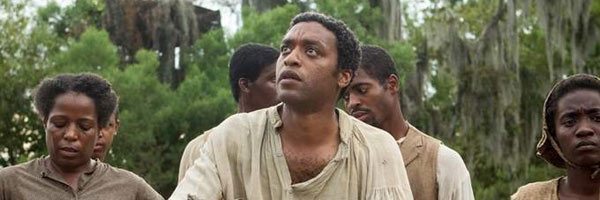The Academy Awards Unchained
Steve McQueen’s adaptation of 12 Years a Slave – in equal measures visceral and brilliant – has garnered much attention this awards season. With nominations from, amongst others, the Academy Awards and the Directors Guild of America, McQueen, cast and crew are widely anticipated to reap the rewards of their work in the coming Oscars. A focus of this attention regards the particular incongruity of the fact that, if McQueen does win a Best Director at the Academy Awards, he would be the first black person to do so.
Why then, after the ostensible ushering in of a post-racial era through the presidency of Barack Obama, this discrepancy? Unfortunately, taking a broader view of the film industry, the reality of the situation is that minorities are still grossly underrepresented in Hollywood. One need only glance at the top grossing films of 2013 to see how many have black protagonists. Aside from arguably the Rock in the latest Fast & Furious film, and Don Cheadle in Iron Man 3, there aren’t any; they remain supporting characters.
Black cinematic output is still under the restriction of race; films about being black, either nowadays or historically, are rewarded with nominations
Indeed, one harks back to a statement Roger Ebert made in his remarkably prescient 1972 review of the film The Legend of Nigger Charley: “If the current group of black-oriented movies has proven anything, it’s that there’s a large pool of skilled and interesting black actors in Hollywood. Whether it will forever be necessary for them to waste their talents in dumb screenplays is a question that must come to them sometimes late at night.” 2 Guns, After Earth, White House Down…forty years is a long shelf-life, but it is sad to see that the relevancy of Ebert’s lamentation is unaffected. Times have not changed as much as we would like to believe.
Of course, it would be an egregious error to ignore some of the quality films that have been made by and starring black people. 12 Years a Slave is of course one, but The Butler, Mandela and Fruitvale Station have all brought some diversity to an otherwise (pun not intended) whitewashed 2013. Black directors have deservingly received Best Director nominations in the past, namely for Boyz n the Hood and Precious. The title of this article even stems from Quentin Tarantino’s black protagonist led western Django Unchained. However, there is still a disturbing trend that all of this points toward.
Idris Elba, of Luther and more recently Mandela fame, once commented on the lack of black characters in the undeniably outstanding Inception – such a film is not classified as a ‘white’ film, despite a cast almost entirely made up of white actors. In contrast, ‘black’ films are understood almost as a genre, ranging from Big Momma’s House to Do the Right Thing, categorised only as such due to the majority of black actors within it. To quote Lincoln, “that I suppose is the rub.” Black cinematic output is still under the restriction of race; films about being black, either nowadays or historically, are rewarded with nominations, whereas the much of the rest of the talent end up making dumb or harmless flicks like Olympus Has Fallen and Are We There Yet? All the films previously mentioned fit into either of these two categories, and in this instance McQueen opts for the former.
McQueen expressed that he doesn’t know why Hollywood hasn’t produced an Oscar- winning black Director, but this ambiguity may be affected as part of his attempts to become the first. A man of McQueen’s genius can surely see that black film-makers can only be intelligent when dealing with their own issues; namely slavery and contemporary, urban black problems. McQueen has challenged this, perhaps unconsciously, throughout his cinematic career. Hunger dealt with Irish hunger strikes, and Shame with sex addiction. He does not let himself be confined to merely entertainment or ‘black’ films: unsurprising for a Turner Prize winner, he creates art. If McQueen does receive the prestigious award, it is my sincere hope that his next project will serve as another breakaway from these imaginative limitations—reminding aspiring black film-makers that there’s more to life than White Chicks; that no matter who you are, your race does not define your creative boundaries.


Comments